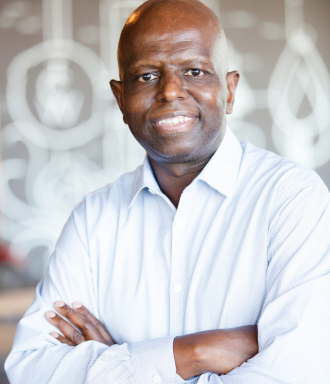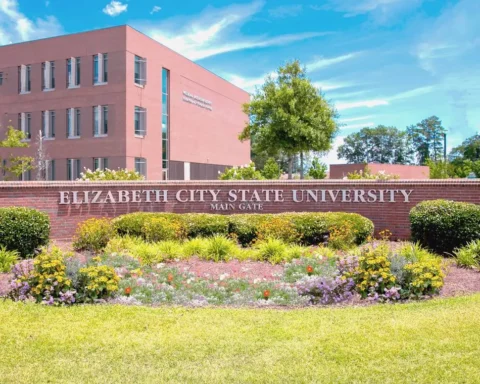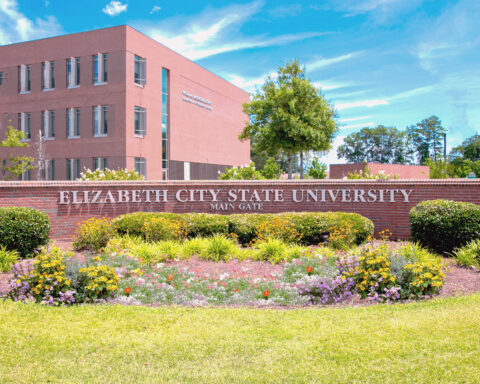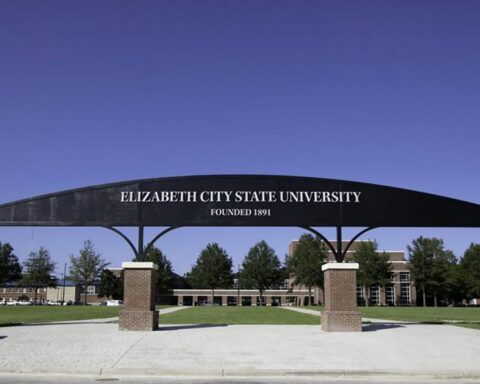Adult learners often come to higher education with a variety of skills and experiences that aren’t directly reflected in their academic transcripts. Credit for prior learning (CPL) is one way colleges and universities can recognize education outside of the classroom and expedite a student’s degree completion.
An April 14 webinar hosted by the Council for Adult and Experiential Learning highlighted effective strategies for implementing credit for prior learning at four historically Black institutions: Elizabeth City State University, Atlanta Metropolitan State College, Morgan State University and Delaware State University.
Campus leaders shared the value of CPL policies, described how they’ve collaborated with various stakeholders at their institutions and provided logistical details for making CPL accessible for students and manageable for faculty.
Understanding the need: The administrators spoke of the importance of offering credit for prior learning to working adults seeking a credential.
“What we realized is that if you really want to continue to grow your enrollment, high school graduates cannot be the only population you serve,” said Farrah Ward, provost and vice chancellor for academic affairs at Elizabeth City State University in North Carolina.
One of the signature programs at her institution is a bachelor’s degree in aviation science. A significant number of students who enroll in the program already hold a private pilot’s license, but in the past they had to take repetitive courses to fulfill degree requirements. By offering CPL, the university is now able to recognize aviation students’ licenses and reduce redundancies in their course load.
Gaining buy-in: Before launching CPL, leaders at Elizabeth City State held an event for faculty and staff to talk about how to better serve adult learners in all departments and areas of the student experience.
The university also leveraged the expertise of various campus departments, including faculty, admissions professionals, military and veterans’ affairs staff, and student affairs leaders, Ward said.
Partnering with faculty members is key to a successful CPL process, Ward said, and can mean rolling out CPL in small measures to ensure frameworks are supported by professors and aligned with the respective learning outcomes for the discipline.
Atlanta Metropolitan State College has a CPL committee, which includes four faculty members to maintain the faculty voice in decision-making, said Kokila Ravi, director of online and specialized programs.
State policy also drives the implementation of CPL. North Carolina uses a performance-based funding model, and Elizabeth City State is evaluated on how it increases the adult learner population on campus, tying CPL directly to institutional health and funding.
Similarly, Maryland state law requires higher education institutions to offer some form of competency-based learning or credit for prior learning, said Nicole Westrick, assistant vice president and dean of Morgan State University’s College of Interdisciplinary and Continuing Studies.
Creating early awareness: Alerting students of CPL opportunities is key, panelists said. “Most times [the admissions team] is the first point of contact, and when they are having those conversations with potential students, we let them know that CPL is an option,” said Rolanda Harris, director of adult and continuing education at Delaware State University.
Elizabeth City State is piloting an adult learner orientation tailored toward students ages 25 and over this fall, Ward said, during which staff will specifically talk about CPL.
Morgan State hosts intensive advising appointments with incoming students, in which advisers discuss CPL and the university’s transfer evaluation system.
Easing access: College leaders also shared innovations their campuses have implemented to reduce barriers to access for learners interested in taking advantage of CPL.
Morgan State offers students the option to enroll in a two-credit elective course to help them create a portfolio. “They participate in a peer review, practice their writing, preparing the portfolio, and when they’re finished, there’s a staff review of the portfolio to make sure that they’ve done a good job of aligning that prior learning experience with the learning outcomes from courses at Morgan State,” Westrick said.
Morgan State also creates digital rubrics for faculty members reviewing the portfolio, “so that it eases the cognitive load for our faculty in finding what they’re looking for; it always follows the same format,” Westrick said.
Some of the colleges offer a wide range of applications for CPL, requiring the students to earn a certain number of credits from the institution for their degree while allowing CPL to take the place of general education and major courses.
Funding CPL: Morgan State received a $5,000 grant from the American Council on Education to standardize and scale CPL on campus. Atlanta Metropolitan State received a $25,000 grant from the Adult Learning Consortium and the University System of Georgia to kick-start the process.
Some panelists said they charge a fee for portfolio assessment, for which the average student pays between $150 and $250. A few campus leaders said they provide a stipend to faculty for reviewing portfolios, while others offer the service pro bono.
Being mission-minded: For institutions considering implementing CPL, Ward said it’s important to start somewhere, even if it seems daunting. In the same vein, remaining flexible and understanding that CPL policies may have to pivot is important, said Harris. “I would just say, ‘Stay open.’”
Westrick said starting with the institutional mission in mind is critical, because that helps ground the process in understanding who will benefit from the policy and how it can make meaningful changes in their educational goals.
Utilizing faculty champions to advertise the offering and encourage students to take advantage of CPL is another lesson to learn, Ravi said. “We are still struggling to get the word out and get students to know about it. That’s why we are relying heavily on our faculty to promote the process.”





